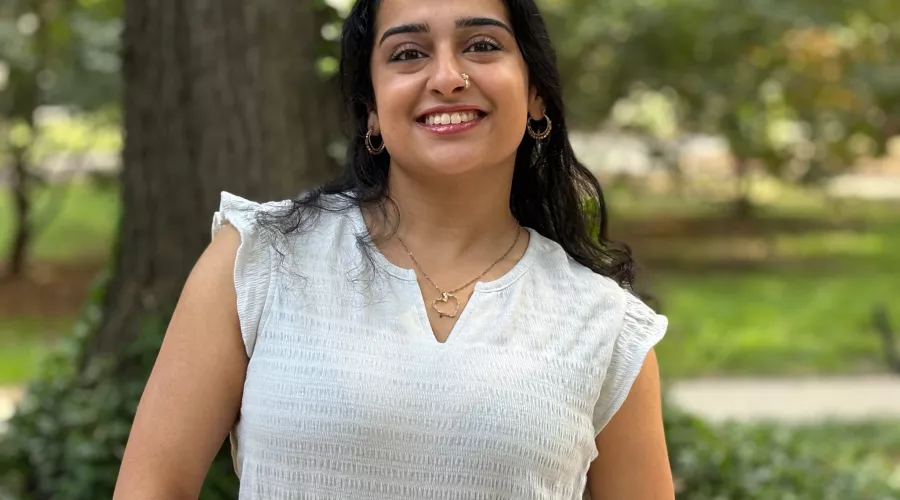Interdisciplinary Data Sciences Minor a Perfect Match for Neuroscience Major
July 9, 2025
Neuroscience Major Vaidehi Soni
By Stephanie Godward, Communications and Marketing Director, College of Arts & Sciences
Neuroscience Major Vaidehi Soni was always drawn to numbers.
So, when she discovered that UofL offered an Interdisciplinary Data Sciences Minor that included statistics—a subject she loved in high school—she knew she had to add it to her course plan.
“I had really liked math since high school,” she said. “I took a statistics class in high school, and when I looked at the Interdisciplinary Data Sciences page on the UofL website, it showed that statistics were a couple of the classes that you had to take. I had always wanted to do more math, and statistics was my favorite kind of math.”
Designed for students from a variety of majors, the Interdisciplinary Data Sciences Minor provides foundational skills in programming, statistics, data visualization, and the ethics of data use.
The interdisciplinary minor requires 18 credit hours and is flexible enough to fit alongside nearly any major—including biology, business, political science, English, and in Vaidehi’s case, neuroscience.
That pairing has already paid off. Vaidehi said the statistical knowledge she’s gained through the minor has helped her better understand research methods in her neuroscience courses.
“In one of the classes I took, BIO 350, it was a lot based on research methods and how you can analyze data,” she said. “Another class that’s required for neuroscience majors is PSYC 382, which is cognitive science. In that class, we read up to four research papers, and it was just very easy for me to get by and read through the methods because I had seen those tests before and I knew what they meant. I was able to understand more than just ‘this has a strong correlation’—I was able to understand the numbers a little bit more.”
That deeper understanding of data has made her more confident when reading scientific literature and thinking critically about research findings—skills that will be vital in her future plans.
“I’m really interested in research,” she said. “I haven’t done too much yet, but I really think that this minor will help me apply a little bit more and understand what I’m actually doing in terms of the numbers, and not just the neuroscience part.”
While she still has some minor coursework to complete in her final year at UofL starting this fall, Vaidehi is already enjoying the benefits of combining her passions for neuroscience and data science. One of her favorite projects so far was a breakout-room-style final exam in BIO 350.
“We were split into groups and supposed to solve a lot of statistics-based questions to kind of ‘break out’ of the room,” she said. “It was two of my favorite things—teamwork and statistics—put together.”
She’s also looking forward to enrolling in MATH 360, a unique course that satisfies both a math requirement for the minor and a writing requirement for the College of Arts & Sciences.
“It’s a math class, but it’s also a writing class,” she said. “So, I’m really excited to see what that brings.”
As Vaidehi heads into her final year at UofL—graduating a year early—she’s confident that her interdisciplinary education is giving her a competitive edge.
Related News




